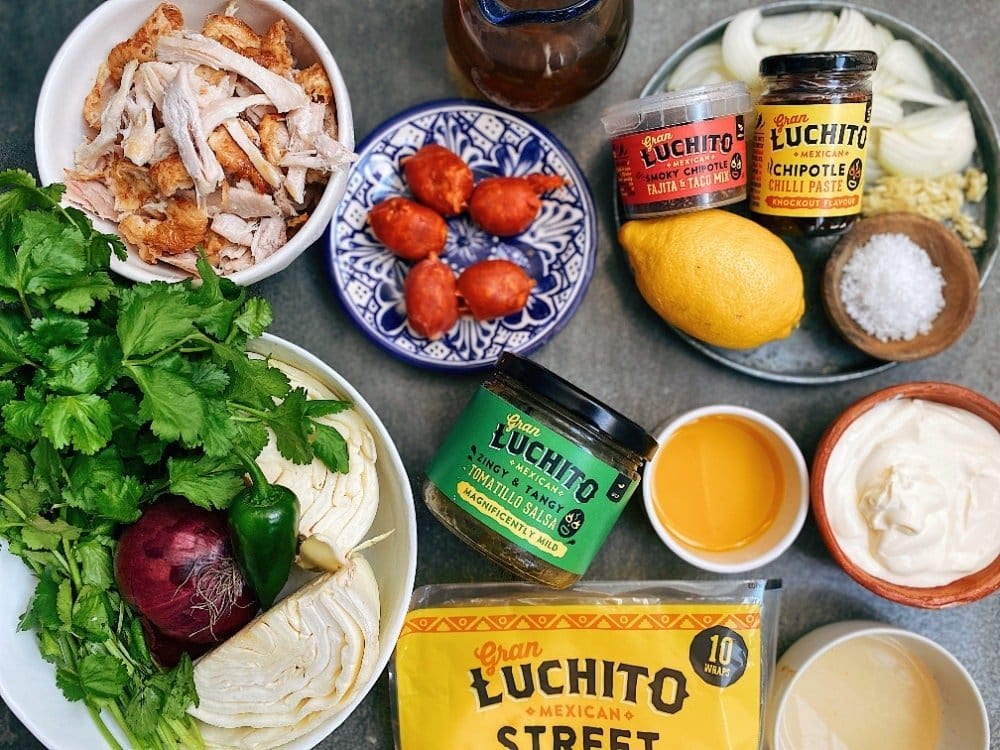
Take your tastebuds on a Hawaiian Vacation
Summer just got here, and this heat already has us dreaming of a sweet island getaway. That’s why this month we turned to the beautiful
Cart
No products in the cart.
NEW YEAR SALE ENDS IN
Spend $130, Save $15. Spend $170, Save $20. Spend $200, Save $30.
According to Merriam Webster the term whole food means “a natural food; especially an unprocessed one such as a vegetable or fruit.” While there’s no official criteria for a whole food diet, most would agree that it consists of minimally processed food as close to its natural state as possible. Experts agree this is a smart way to eat as it encourages nutritious options from all the food groups.
At Healthy Gourmet we are proud to prepare our meals using all-natural ingredients and without artificial preservatives. Consequently, our meals are packed with the nutrients and taste that nature intended and do not have added sugars, starches, flavorings, or other manufactured ingredients. In this way, we believe that Healthy Gourmet’s approach to preparing meals is as close to whole food as we can make it. What are some examples of whole food, why should we eat them and how can we incorporate them into our diet?
While some whole food diets are plant based, others can include meat, poultry, dairy and fish, provided that it is minimally processed. In fact, whole food can mean produce of any kind:

By definition, a processed food is a food item that has had a series of mechanical or chemical operations performed on it to change or preserve it. Processed foods are those that typically come in a box or bag and contain more than one item on the list of ingredients.

According to nutrition experts there are at least six reasons we should eat more whole foods:
In the past 10 years, scientists have identified hundreds of biologically active plant-food components called phytochemicals (or phytonutrients). They include the powerful antioxidant lycopene, a red-colored carotenoid found mainly in tomatoes; anthocyanins, a powerful antioxidant that gives deep blue color to berries; and pterostilbene, which appears to turn on a “switch” in cells that breaks down fat and cholesterol, and is found in blueberries and the Gamay and Pinot Noir varieties of grapes.

According to national survey results published by the U.S. Department of Agriculture, almost a third of us get too little vitamin C; almost half get too little vitamin A. Likewise, more than half get too little magnesium; and some 92% to 97% get too little fiber and potassium. However, according to the American Institute for Cancer Research (AICR), these particular nutrients help lower the risk of our major health problems: cancer, heart disease, high blood pressure, and diabetes.
When you eat a diet made up mostly of whole foods, it’s easier to decrease the bad-for-you fats (trans fats and saturated fats) often added to processed foods and fast food. At the same time, it’s easier to emphasize the “good” fats (omega-3s from fish and plants, and monounsaturated fat from plant sources). Monounsaturated fats and polyunsaturated fats are known as the “good fats” because they are good for your heart, your cholesterol, and your overall health. These fats can help to lower the risk of heart disease and stroke.

While most whole plant foods are rich in fiber; many processed foods, junk foods, and fast foods are not. Fiber helps your health in all sorts of ways. For instance, it keeps the GI tract moving, helps you feel full faster, and it helps fight heart disease and diabetes. Furthermore, eating fiber-rich foods is linked to control of blood sugar, blood lipids (fats), and weight in adults, according to researchers from the Georgia Prevention Institute who recently did a study on whole-grain foods and abdominal fat in teenagers.
Whole foods are as nature made them, without added fat, sugar, or sodium. Eating more of them will help you cut down on calories from the added fats and sugars we get from processed and fast foods.
“Whole grains are rich in a myriad of vitamins, minerals and phytochemical compounds that, alone or in combination, are likely to have significant health benefits that are beyond that from dietary fiber,” notes Simin Liu, MD, ScD, a researcher and professor of epidemiology at the University of California-Los Angeles.

Now that we know what we should be eating, how can we incorporate it into our diet?
Here are some simple steps to take:
Healthy Gourmet believes in the benefits of whole food. Unlike some of the other brands you see in the grocery store we make sure that our prepared frozen meals are minimally processed and packed with nutrition. Therefore you should feel good about every bite!
https://www.naturalbalancefoods.co.uk/community/healthy-living/what-are-whole-foods/.
https://www.verywellfit.com/what-is-a-whole-foods-diet-2241974.
https://medium.com/better-humans/everything-you-need-to-know-about-the-whole-foods-diet-e4025c3d116c.
https://www.webmd.com/food-recipes/features/the-whole-foods-diet#1.
https://www.webmd.com/food-recipes/features/the-whole-foods-diet#2.
https://www.onegreenplanet.org/vegan-food/quick-benefits-youll-see-by-switching-to-whole-foods-plant-based-diet/.https://www.webmd.com/diet/features/the-benefits-of-healthy-whole-foods#1.
https://www.everydayhealth.com/diet-nutrition/scientific-benefits-following-plant-based-diet/.
https://experiencelife.com/article/the-whole-food-advantage/.
https://thebeet.com/how-to-start-eating-a-whole-foods-plant-based-diet/.
https://www.mdanderson.org/publications/focused-on-health/5-benefits-of-a-plant-based-diet.h20-1592991.html.
https://www.healthline.com/health/food-nutrition/plant-based-myths-debunked.
https://www.healthline.com/nutrition/plant-based-diet-guide.
https://www.forksoverknives.com/how-tos/plant-based-primer-beginners-guide-starting-plant-based-diet/.

Summer just got here, and this heat already has us dreaming of a sweet island getaway. That’s why this month we turned to the beautiful

Check out how EatFlavorly utilizes Mexican meats and so many more in our scratch-made meals over at Our Menu! With Cinco de Mayo

National Earth day is approaching on Thursday April 22nd. Today, not only is Earth Day a day meant to increase awareness of environmental problems, but
The convenience of home meal delivery is undeniable. Getting food delivered to your door that does not require cooking or cleaning is a huge time-saver.